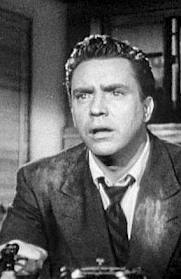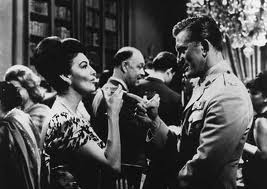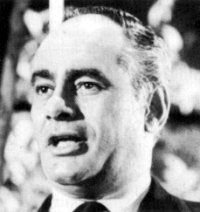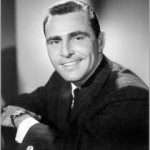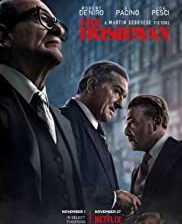- Two Thanksgiving Thoughts for the ACAPosted 10 years ago
- Shop til you Drop at the Healthcare Marketplace Part 2: Frustration!Posted 10 years ago
- An Early Casualty in the Affordable Care FightPosted 10 years ago
- Some Good News for a ChangePosted 10 years ago
Classic Movie Review: “Seven Days in May” (1964) directed by John Frankenheimer

SEVEN DAYS IN MAY (1964)
Director: John Frankenheimer (Birdman of Alcatraz, Grand Prix, Ronin)
Screenplay: Rod Serling (adapted)
Cast:
Burt Lancaster (From Here to Eternity, Elmer Gantry, Birdman of Alcatraz)
Kirk Douglas (Paths of Glory, Spartacus, 20000 Leagues Under the Sea)
Frederic March (Death Takes a Holiday, A Star is Born, Best Actor Oscars for The Best Years of Our Lives and Dr. Jekyll & Mr. Hyde)
Ava Gardner (Mogambo, The Killers, The Barefoot Contessa)
Running Time: 118 Minutes
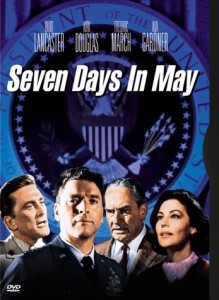 The moment this movie began, I recalled peeling myself out of my seat after watching “The Manchurian Candidate”, Frankenheimer’s movie before this one. I saw it for the first time in 1988 (at San Francisco’s Castro Theater) when Frank Sinatra — who obtained the rights for the movie in 1972 and pulled it out of theatrical circulation* — finally re-released it. The two films looked and felt so similar I assumed Frankenheimer used the same technical people and crews for both. I checked and I was wrong. The only significant technical contributor to both movies was its editor. It shows how strong Frankenheimer’s touch was in his prime.
The moment this movie began, I recalled peeling myself out of my seat after watching “The Manchurian Candidate”, Frankenheimer’s movie before this one. I saw it for the first time in 1988 (at San Francisco’s Castro Theater) when Frank Sinatra — who obtained the rights for the movie in 1972 and pulled it out of theatrical circulation* — finally re-released it. The two films looked and felt so similar I assumed Frankenheimer used the same technical people and crews for both. I checked and I was wrong. The only significant technical contributor to both movies was its editor. It shows how strong Frankenheimer’s touch was in his prime.
Like “The Manchurian Candidate”, 7 Days is about the Cold War but is more grounded in reality (not a stretch). Paranoia was part of our daily lives during that period and is the basis of the story. I was thinking as I watched the movie, “What a relief when the cold war was over”, then I remembered Putin or, as I refer to him, “Stalin 2.” U.S. President Jordan Lyman (March) is about to enter a disarmament treaty with the Soviet Union but the country’s military leaders, led by Gen. James Mattoon Scott (Lancaster) oppose it, fearing the Soviets will take advantage and attack while our pants are down. They see the president as weak, and disarmament as a huge mistake. They clearly live their lives by the saying, “it’s not paranoia if they’re really out to get you.”
This military cartel forms a secret base in New Mexico to serve as the headquarters for their plan to overthrow the government and restore strength.. The movie explores the concept of betrayal as Scott’s closest military attaché, Col. “Jiggs” Casey (Douglas), reluctantly aligns himself with the President as the truth trickles out.
Everything about this movie is excellent and powerful. Engaging from the onset, the film begins with scenes of a peaceful protest march and supporters of both sides picketing in front of the White House. The demonstrations quickly become violent and out-of-control, setting the tone perfectly. I liked the opening scene so much I played it again before I continued the movie. The paradox of fighting to obtain peace plays out on several levels. The tensions never let up and manifest themselves in different ways. The final private confrontation between Lyman — whose skeptical staff only slowly comes to believe Casey’s warnings — and Scott is magnificent, more attributable to March than Lancaster, although Lancaster is very good in the scene as well. He gives a great account of a man obsessed with his own righteousness.
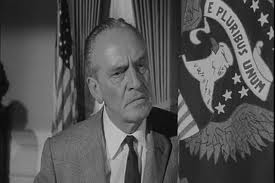 Throughout, the acting is excellent, committed and convincing. With each movie I see March in, I’m baffled, and a bit saddened, that his place in the Hollywood is not nearly what it should be. He won his first Oscar in 1932 for Dr. Jekyl and Mr. Hyde, Most critics rate his performance as far better than Spencer Tracy’s (with whom he is often compared) in the 1941 remake. His charm alone carried the original “A Star is Born,” and especially “Death Takes a Holiday”. This performance further enhances my opinion of him. There is a different dimension to his performance here, coming 18 years after “The Best Years of Our Lives”, one of the best movies of our lives, and his greatest role. I didn’t even recognize him right away. He’s tired, irritable, conflicted, harassed but completely persuasive as the chief executive.
Throughout, the acting is excellent, committed and convincing. With each movie I see March in, I’m baffled, and a bit saddened, that his place in the Hollywood is not nearly what it should be. He won his first Oscar in 1932 for Dr. Jekyl and Mr. Hyde, Most critics rate his performance as far better than Spencer Tracy’s (with whom he is often compared) in the 1941 remake. His charm alone carried the original “A Star is Born,” and especially “Death Takes a Holiday”. This performance further enhances my opinion of him. There is a different dimension to his performance here, coming 18 years after “The Best Years of Our Lives”, one of the best movies of our lives, and his greatest role. I didn’t even recognize him right away. He’s tired, irritable, conflicted, harassed but completely persuasive as the chief executive.
Lancaster is typically intense and great and it was a treat to see Douglas in such an understated, subtle and nuanced performance. I didn’t list Edmund O’Brien, the film’s only Oscar nominee, in the cast credits because I do not know his work that well. Here he plays Lyman’s close (and alcoholic) advisor/friend and makes his scenes register.
When you have a cast like this movie has, every actor inspires every other actor. This was the first movie I’ve seen with Ava Gardner — as Scott’s bitter, martini-swilling ex-wife and Casey’s paramour. Before I realized who she was, I was struck by how beautiful she was, years after her 40’s prime. More to the point, I was impressed how strong her performance was. I always thought of her another as another Lana Turner, who I never thought was talented or interesting.
Martin Balsam, another Academy Award winner, is reliable as ever in support as the President’s right-hand man, investigating the rumors and doing the legwork for the White House. There are a handful of other character actors around that you will recognize from this period, all doing a good job. I actually leaned forward when I saw (and especially heard) John Houseman in an uncredited role, as the Navy admiral whose contribution to the story is more significant than his minimal screen time would suggest. I like not knowing everyone in a movie before I see it. The surprises add to the enjoyment. I’m a very physical movie-watcher.
I had to mention Serling in the credits because I only knew him previously from “The Twilight Zone” and I was impressed by his adapted screenplay and its dialogue. Despite my focus on the intense story and dialogue, the camera work and backdrops were well-done.
One of my mantras is “the real wealth of Hollywood lies in its older movies”. “Seven Days in May” punctuates that sentiment with an exclamation mark.**
Dan
____________________________________________________________________________
* The big draw at the time I saw “The Manchurian Candidate” was the fact that Sinatra pulled the movie (and the movie “Suddenly”) because he worried there was some connection between it and Oswald’s assassination of Kennedy. I read recently that Sinatra really gave no reason for keeping it in the vault between 1972 and 1988. Good rumor, though. Helped get me into the theater.
** I rarely use exclamation marks.
This movie was amazing, yet won no Oscars. It was 1964 in the aftermath of the Kennedy Assassination, and the big films of the year were My Fair Lady, Mary Poppins, Goldfinger, Zorba the Greek, Pink Panther and the Unsinkable Molly Brown. A few years later, Frankenheimer’s “Grand Prix”, which I saw as a kid during its original 1966 release and is nowhere near as good, won 3 technical Oscars. That bothers me. Still a fun movie from what I remember.

